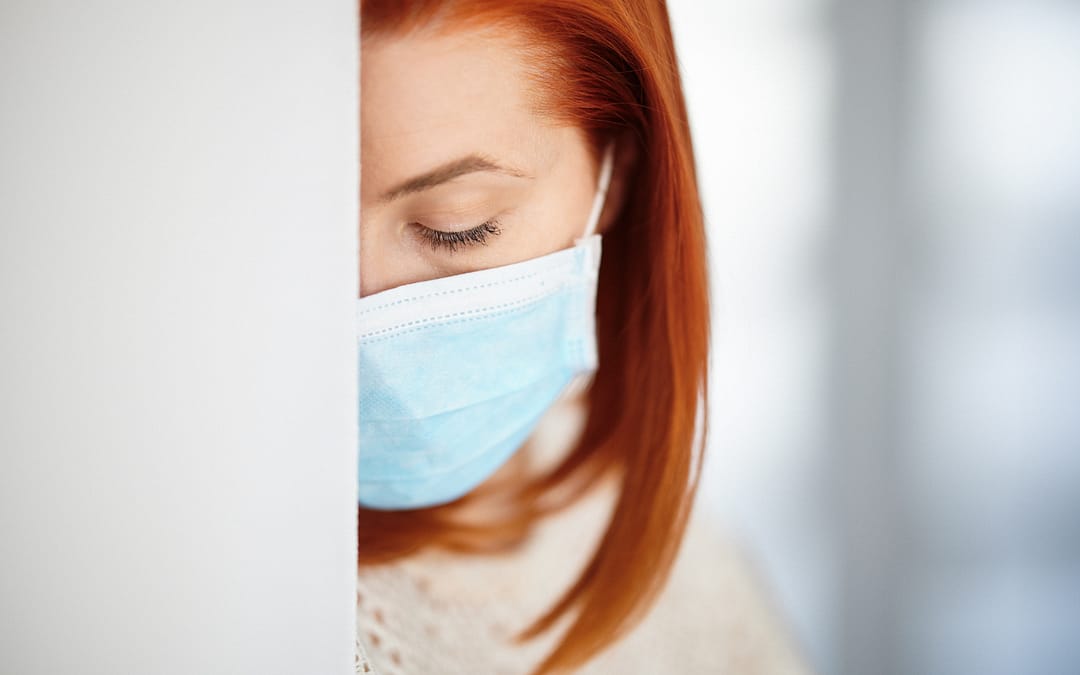Hello to everyone out there! There is a lot of news about hair loss due to Covid-19, and how covid-19 can affect your hair. I have been featured in the Daily Mail and Woman and Home talking about this subject, why it happens and what we can do about it.
I have seen 11 patients who had confirmed COVID-19 and were hospitalised, and around 20 patients who have had COVID-19 symptoms but no confirmed diagnosis.
In this blog, I talk about how Covid-19 can affect your hair, what symptoms affect the hair and why.
What Covid-19 Symptoms Affect The Hair?
High Fever or Temperature
A high fever or temperature that lasts for a number of days usually results in an Acute Telogen Effluvium. Around 6 – 8 weeks after the fever, the hair will begin to shed excessively and it can be both frightening and worrying. This will often resolve itself with no treatment. However, if there are other associated causes then seeking advice is a must.
Loss of Taste and Smell
When we lose our sense of taste and smell, our appetite is ultimately affected. This causes us to eat less and probably lose some weight. Keeping a good level of protein intake daily is really important to keeping healthy, shiny hair. If this drops over a number of weeks, the hair can start to shed excessively. If underlying vitamin and mineral stores were low to begin with, these can become even more depleted and the hair will shed as a result.
A simple blood test can find out what your underlying pathology looks like and can advise what course of action to take.
Diarrhoea
If the food that we do take in is being expelled too quickly, then the absorption of essential vitamins and minerals is depleted. Dehydration also takes place. This of course has a negative impact on the overall health of the hair and scalp.
Isolating to Recover
Vitamin D is really important to a normalised hair growth cycle. If you are indoors for a lengthy period of time and not exposed to the sunshine, this vitamin can easily be depleted, and excessive hair shedding can be a consequence of this.
Fatigue and Lack of Hair Washing
Patients have found that their scalps have become inflamed, irritated, itchy and flaky. This is due to not being able to wash the hair, and a build-up of sebum and skin cells sitting on the scalp and blocking the follicles. A good hair care regime with shampoos that can really balance the scalp are the best way to get this back under control. Talk to a Trichologist to find out what would be best for you.
Other Effects of Covid-19 on the Hair
Patients who were hospitalised typically reported a loss in weight, no appetite, anxiety and insomnia. All of these will affect the hair and may largely manifest as excessive shedding. Some experience Alopecia Areata, patchy hair loss, as well as the excessive hair shedding.
What has become obvious is that the effects of COVID-19 are wide reaching and do affect the hair and scalp.
The Institute of Trichologists are about to conduct a sample survey of their members to look at the impact of COVID-19, and to present the findings to hopefully lead to some further investigations.
My Advice
My treatment plans for each patient that has been affected by COVID-19 vary from dietary changes, to specific supplements, to boost protein intake, reduce inflammation and also provide those essential amino acids.
Feedback has been really with patients being reassured that total hair loss or permanent hair loss is not the issue. It is the natural growing and shedding cycle that has been affected in the majority of cases. Once normalised, the shedding decreases and the hair volume gradually returns.
If you are worried about your hair due to COVID-19, do speak to a Trichologist who can give you expert advice and guidance.
Once you know what the underlying causes, are you can take action to ensure that your hair and scalp don’t become a problem as a result of this most terrible pandemic.
As always, if you have any general concerns then please email me on eva.proudman@ukhairconsultants.com and I will be very happy to help and support you. Or get in touch here!

